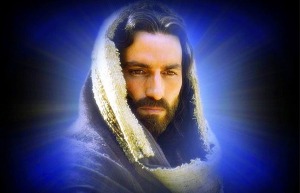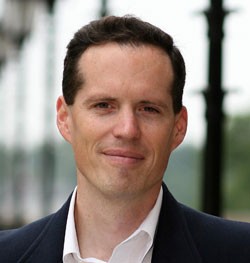-by Tim Muldoon, (Ph.D. Catholic Systematic Theology, Duquesne University) edits the journal Integritas: Advancing the Mission of Catholic Higher Education (bc.edu/integritas), a publication of the Boston College Roundtable, hosted by the Division of University Mission and Ministry. A theologian and author of many books, he has taught for over 15 years in the Western cultural tradition, Ignatian spirituality, and Catholic theology. He currently teaches a course in the Capstone program at Boston College, “Desire and Discernment.”
“Margery Eagan writes in Crux about professors who must hide their Christian faith amidst lingering prejudice in the academy. Her story focuses on Jeffrey Reimer, Chair of Chemical and Biomolecular Engineering at Cal Berkeley. He is the Warren and Katharine Schlinger Distinguished Professor in Chemical Engineering and the C. Judson King Professor of Chemical and Biomolecular Engineering there.
In every imaginable way, Reimer is a distinguished academic in a critical STEM discipline. He is also a devout Christian. He spoke at the Cambridge Roundtable on Science, Art, and Religion, a gathering of faculty from Harvard, MIT, Boston University, and Tufts University.
And there was Reimer, totally upfront about his own powerful faith, using none of the usual God euphemisms. “Source.” “Reality.” “Ground of being,” etc. He actually invoked Jesus’ name, talked about his personal relationship with the Lord, recited the “Our Father.” And he repeatedly called himself a “Christian,” as in a born-again, accept-the-Lord-as-your-savior Christian.
Eagan goes on to describe the milieu in which academics practicing Christian faith must hide that fact until after they receive tenure.
Harvard and MIT graduate students and faculty talked about practicing an under-the-radar religion — lest colleagues or superiors doubt them as serious scholars. Some said it’s best for any “out” and serious Catholic, Buddhist, Muslim, Jew, or even mainline Protestant to emphasize their progressive views. That’s doubly important for self-identified “Christians.” (…)
Reimer himself said professors know they cannot “come out” as Christians until they get tenure.
There is evidence that this prejudice is not just anecdotal. George Yancey, Professor of Sociology at the University of North Texas, did a study, published in the book Compromising Scholarship: Religious and Political Bias in American Higher Education (Baylor University Press, 2011):
In this first systematic attempt to substantiate social bias in higher education, George Yancey embarks on a quantitative and qualitative analysis of the social biases and attitudes of faculties in American universities—surveying professors in disciplines from political science to experimental biology and then examining the blogs of 42 sociology professors. In so doing, Yancey finds that politically—and, even more so, religiously—conservative academics are at a distinct disadvantage in our institutions of learning, threatening the free exchange of ideas to which our institutions aspire and leaving many scientific inquiries unexplored.
If this is true, namely that there is bias against Christians (not to mention practitioners of other faiths), then the academy is hampered in its mission of education. Moreover, it reflects a certain inauthenticity, given the fact that most professors are not, in fact, atheists, but rather are more religious than the current academic climate might suggest, according to a 2006 study.
C. John Sommerville has argued in The Decline of the Secular University that the current state of higher education is weak precisely because it finds itself unable to address the most significant questions that ordinary people face: about meaning, about God, about love, about sacrifice and self-giving, about answers to the questions that lie at the edges of what our sciences can tell us.
If our universities are to become more than professional schools, their rationalism needs to be in dialogue with other “traditions of inquiry.” For the most important matters in life include such matters as hope, depression, trust, purpose, and wisdom. If secularism purges such concerns from the curriculum for lack of a way to address them, the public may conclude that the football team really is the most important part of the university. But if they are taken up, we will find ourselves using terms that seem to belong in a religious discourse. We have dodged this issue by saying that true, good, just, are all political, meaning that they can’t be discussed but only voted on. But in fact they could be discussed if our discussions were to recognize a dimension of ultimacy. It will do wonders in drawing attention and respect to our universities. And it ought to make religion itself a less frivolous thing than it has become.
The real issue is not that Christian faith is anti-intellectual. We invented the university. Rather, the issue is that we have pushed Christian faith out of intellectual conversation out of an a priori bias, leaving much contemporary Christian discourse bereft of intellectual merit. What a great good universities could build by inviting it back into open conversation– not only on Catholic campuses, where it thrives in small pockets, but also in the mainstream.”

